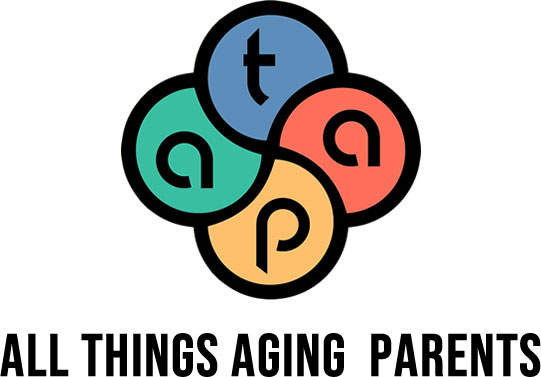The term dementia is a general term for a decline in mental ability severe enough to interfere with daily life. Dementia describes a group of symptoms affecting memory, thinking, and social abilities. Another term describing the same symptoms is neurocognitive disorders. (Alzheimer's Disease is the most common cause of progressive dementia, and will be discussed on another page.)
Dementia is the loss of cognitive functioning—thinking, remembering, and reasoning—and behavioral abilities to such an extent that it interferes with a person's daily life and activities. These functions include memory, language skills, visual perception, problem-solving, self-management, and the ability to focus and pay attention. Some people with dementia cannot control their emotions, and their personalities may change. Dementia ranges in severity from the mildest stage, when it is just beginning to affect a person's functioning, to the most severe stage, when the person must depend completely on others for basic activities of living.


One of the earliest symptoms noticed is memory loss, but other symptoms include:
- Difficulty communicating or finding words
- Difficulty reasoning or problem-solving
- Difficulty handling complex tasks
- Difficulty planning and organizing
- Difficulty with coordination and motor functions
- Confusion and disorientation
- Difficulty focusing or paying attention
- Difficulty thinking abstractly or problem-solving
- Difficulty exercising sound judgment
- Personality changes
- Depression, anxiety, agitation
- Inappropriate behavior
- Paranoia and hallucinations
Dementia is caused by damage to brain cells that impairs their ability to communicate with each other. It affects people differently, depending on what part of the brain is affected. It is hard to plot a clear course of the progression of the disease because symptoms will look different for each individual. The majority of dementias worsen over time.
Risk factors: Some risk factors cannot be changed. While not a part of normal aging, the risk of dementia increases as we age, especially after age 65. Having a family member with dementia increases our risk, but many people with a family history never develop symptoms, and many people without a family history do. By middle age, many people with Down syndrome will develop Alzheimer's disease. Having mild cognitive impairment also increases our risk of dementia. There are other risk factors that we can control, such as heavy alcohol use and smoking. Some physical conditions - high blood pressure, high cholesterol, obesity, diabetes, and a buildup of fats in our arteries – can be controlled with diet and exercise.
Some dementias are reversible because they stem from treatable causes. These include anxiety, dehydration, depression, infections, medication side effects, poor nutrition, stress, substance abuse, or metabolic problems. Normal pressure hydrocephalus (NPH) is another disease that can look similar to Alzheimer's disease or Parkinson's disease but may be treatable.
Irreversible dementias include:
- Alzheimer’s disease, which will be covered more thoroughly in another section. Alzheimer’s is the most common dementia, accounting for 60-80% of all dementias. It is a progressive, gradual disorder caused by the buildup of plaque and tangles (different kinds of protein) in the brain. The plaque and tangles damage nerve cells which inhibit the brain from processing information.
- Vascular cognitive impairment (VCI), which is caused by small strokes that decrease blood flow to the brain. These small strokes cause a step-down deterioration in functioning, interspersed with periods of stable function. VCI can also be caused by a single larger stroke that blocks the main blood vessels and deprives the brain cells of needed nutrients and oxygen. (Not all strokes lead to dementia.) Some symptoms of VCI are memory-related: agnosia (the inability to recognize familiar objects), aphasia (the loss of the ability to speak or understand speech), and apraxia (difficulty with physical movement). High blood pressure and diabetes are risk factors for VCI.
- Lewy body dementia (LBD), which is associated with abnormal clumps of protein (Lewy bodies) in the brain. Symptoms of LBD can include confusion, attention problems, movement problems (like Parkinson’s disease), and visual hallucinations. Less is understood about LBD than other forms of dementia.
- Parkinson’s disease, which is caused by the loss of a chemical called dopamine. This causes movement problems early in the disease process. If dementia develops it may include mild cognitive impairment, difficulties in problem-solving, fluctuation in attention, slower processing speed, and some memory problems.
- Frontotemporal dementia (Pick’s disease), which is caused by cell damage in the frontal and temporal lobes of the brain. Symptoms include impaired planning and judgment, emotions, speaking and understanding speech, and some movement. It is often evidenced by changes in personality and behavior and involuntary movements.
There is no single test to determine if someone has dementia. The diagnosis requires evidence of decline from the person’s previous level of functioning in the areas of memory, language skills, the ability to focus and pay attention, the ability to reason and problem-solve, and visual perception. This decline must be serious enough to interfere with day-to-day independent functioning, and the decline cannot be better explained by delirium or another diagnosis.
Doctors use a variety of measures to diagnose dementia. Some of these evaluations include:
- Medical history – current mental and physical conditions, medications, family health history, and onset and progression of memory or behavioral changes
- Mental status evaluation – how well oriented the person is to time and place, how well they can remember, understand, communicate and calculate
- Neuropsychological evaluation – tests of memory, concentration, reasoning, coordination, and language function
- Physical examination – nutritional status, blood pressure, pulse, vision, hearing, and motor function
Sometimes doctors will use additional testing, such as:
- MRI (Magnetic resonance imaging) of the brain, or CT or PET scans
- Laboratory tests – blood, metabolic, vitamin B12, thyroid, urine
- Psychiatric evaluation – geriatric psychiatrists specializing in preventing and treating mental disorders in older adults
The progression and treatment of dementia will be discussed with Alzheimer’s disease.
Resources:
- https://www.mayoclinic.org/diseases-conditions/dementia/symptoms-causes/syc-20352013
- https://www.alz.org/alzheimers-dementia/what-is-dementia
Diagnostic and statistical manual of mental disorders (2002). Washington, DC: American Psychiatric Association.



















